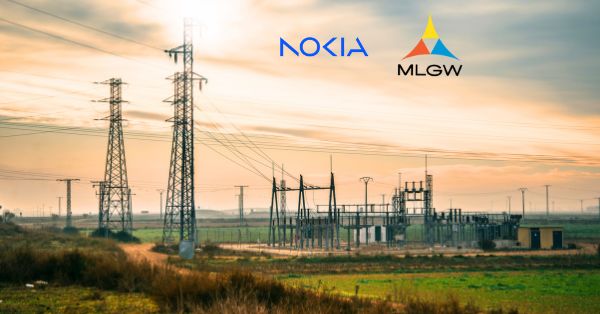Intel made headlines recently as it withdrew from the 5G laptop market, ceasing its partnership with MediaTek. This development was not entirely unexpected, as analysts pointed to the underwhelming sales of 5G laptops and Intel’s ongoing struggles with 5G devices.
There is a chance that 5G-enabled laptops could experience renewed interest in the future, driven by alternative solutions from companies like Qualcomm and others. However, ongoing legal disputes among major semiconductor companies create uncertainty regarding the availability of such products in the market.
In the meantime, 5G network operators anticipating increased service revenues from 5G laptop connections may continue to be disappointed. This is significant, as network operators have not seen substantial revenue growth from 5G technology, despite investing billions of dollars in its deployment.
Intel’s decision to exit the 5G laptop market also includes phasing out its 4G line. Analyst Jack Gold first reported this news, which was later confirmed by Mobile World Live through Intel. Intel clarified that this decision would not impact its Wi-Fi, Bluetooth, Ethernet, Thunderbolt, or network and edge businesses. The company pledged to collaborate with partners and customers to facilitate a smooth transition and support their ongoing operations.
According to Wayne Lam, an analyst with TechInsights, Intel has been hesitant about pursuing cellular connectivity for laptops since it sold its 5G modem business to Apple in 2019. Intel then partnered with MediaTek to incorporate 5G capabilities into its chipset products for laptop manufacturers such as Lenovo and Dell. However, Intel recently launched the “Intel Unison” product, which closely integrates Intel-powered laptops with a user’s existing iOS or Android smartphone, essentially eliminating the need for direct 5G integration in laptops.
Several reasons contributed to Intel’s decision to quit the 5G laptop business:
- Lackluster sales of 5G laptops: The market has not shown strong demand for 5G laptops, resulting in disappointing sales figures. As a result, Intel may have determined that further investment in this area would not yield satisfactory returns. Shoppers haven’t been adequately informed about the advantages of 5G-enabled laptops by retailers such as Best Buy, and major 5G providers like AT&T and T-Mobile has not filled this void by promoting these devices.
- Struggles with 5G devices: Intel has encountered difficulties in developing and marketing 5G devices, which might have influenced their decision to abandon the 5G laptop market.
- Shift in focus: Intel’s decision to sell its 5G modem business to Apple in 2019 and the launch of Intel Unison demonstrate the company’s changing priorities. By connecting laptops to existing smartphones, Intel can still provide a 5G experience without direct integration, allowing the company to focus on other areas of growth.
- Competitive landscape: The legal disputes among major semiconductor players and the uncertainty of future 5G laptop offerings might have contributed to Intel’s decision to exit the market, considering the potential challenges and risks.
Despite Intel’s departure from the 5G laptop market, Qualcomm’s presence may still give hope to the industry. With the acquisition of Nuvia in 2021, Qualcomm is preparing to launch its Oryon platform for laptops, including 5G laptops, next year. This platform could serve as a powerful and energy-efficient alternative to Intel’s dominant x86 platform in today’s laptop market.
Such a product would undoubtedly be welcomed by 5G network operators, considering Qualcomm’s core business involves selling silicon to 5G phone manufacturers like Apple and Samsung. The company’s overarching strategy involves expanding beyond smartphones, partially by supporting Windows-based laptops with cellular connectivity. TechInsights’ Lam mentioned that Qualcomm aims to make 5G integration in laptops a sought-after feature.
Counterpoint’s Fieldhack praised the performance of Windows on Qualcomm Snapdragon devices, citing their long battery life, quick startup time, and the convenience of not having to rely on public Wi-Fi connections.
However, Qualcomm’s plans face a significant obstacle in the form of a lawsuit from Arm, a silicon tech vendor owned by Japan’s SoftBank. Arm accused Qualcomm of unfairly using its intellectual property in Nuvia-based chips. This legal dispute is notable as Qualcomm, MediaTek, and other tech companies partially rely on ARM technologies to design low-power chips. Apple’s latest M-series processors, for example, are based on ARM’s technology, which helped Apple navigate the 2022 market downturn.
Counterpoint forecasts that ARM-based laptops will claim 25% of the market by 2027, up from 13% in 2022. It remains uncertain whether ARM’s plan to increase prices ahead of its planned US initial public offering will affect this projection.
Counterpoint’s Bhatia concluded that although supply chain disruptions and legal challenges have hindered the adoption of 5G laptops, the market is primed for disruption, particularly with Qualcomm’s involvement and partnerships with major PC original equipment manufacturers (OEMs).































